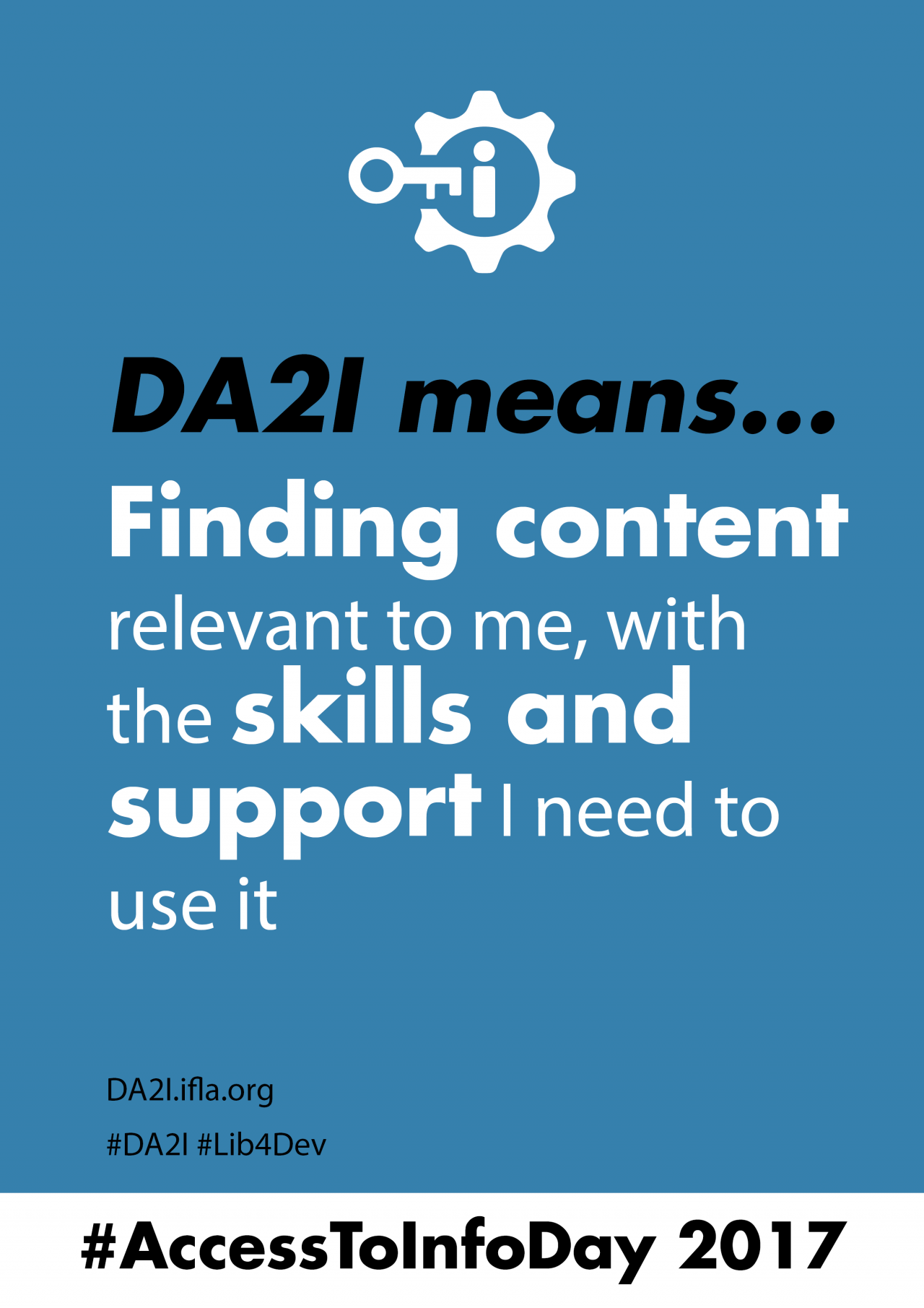International Day for Universal Access to Information 2017: A Day to Celebrate the Essential Work of Libraries
28 September 2017
For libraries, the contribution of access to information to building stronger, fairer and better societies is obvious. They are a place whith no barriers to getting hold of the knowledge needed to learn, innovate and create, or simply take the right decisions.
 Even as information has become abundant, it is clear not only that libraries are trusted, but that they are particularly essential for the groups most in need of a hand-up. This is because access is about more than just having the book, the journal, the computer or the mobile in front of you, but it is also about being able to find relevant content, to understand and apply it, and to have the skills and freedom to create your own.
Even as information has become abundant, it is clear not only that libraries are trusted, but that they are particularly essential for the groups most in need of a hand-up. This is because access is about more than just having the book, the journal, the computer or the mobile in front of you, but it is also about being able to find relevant content, to understand and apply it, and to have the skills and freedom to create your own.
This access cannot be taken for granted. There are still great challenges associated with getting the remaining four billion people online. To give them the skills and confidence necessary to take advantage of the opportunities, to ensure the availability of local content, and to guarantee to all that they can exercise the right to free expression will take further efforts. But they will be worth it.
Beyond Government Information
The International Day for the Universal Access to Information originally focused on access to government information – how was money being spent, how were decisions being taken. This contributes strongly to ensuring that public authorities are genuinely focused on serving the public. Libraries play a significant role here, as centres where people can access government information, as trusted repositories of historic and current documents, and as catalysts for civic engagement.
In its Development and Access to Information (DA2I) report, IFLA has taken a broader view. It has argued that access to all types of information – government documents, academic research, news, market data, educational content, social media – needs to be taken into account if individuals are to benefit fully, and the Sustainable Development Goals to be achieved.
This is both about information on those who govern – in order to improve policies and their implementation – but also on crucial everyday matters, such as health, agriculture, job opportunities and training.
You can find out more about the report in our recorded webinar – this is available in English, French and Spanish. In addition, IFLA’s community will be sharing what development and access to information means to them today on social media, under the hashtags #DA2I, #Lib4Dev and #AccessToInfoDay.
All Can Contribute to Providing Access for All
IFLA therefore encourages governments, businesses and civil society to work together to promote access – inclusive and meaningful access, to all types of information – as a driver of development. In libraries, they will find both strong supporters and willing partners. IFLA’s Development and Access to Information report, developed in partnership with TASCHA, offers both evidence of initiatives that work, and baselines which will allow all partners to measure progress. We encourage all to use this and the associated materials, and look forward to hearing your ideas.
To take part and tell others what development and access to information means to you, simply download the template (in English, French and Spanish), print it out, write in your own answer, and post it onto social media with the hashtags #DA2I, #Lib4Dev and #AccessToInfoDay.
For more information and to download the DA2I report, please access the DA2I website: DA2I.ifla.org